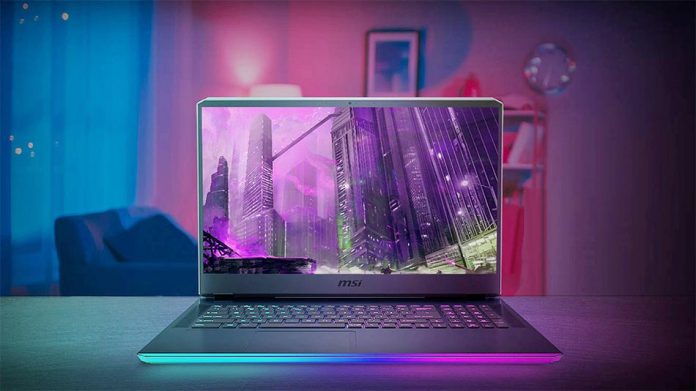Table of Contents
Gaming laptops are among the most powerful laptops ever made. They have high-end features that come in handy when you need to do tasks with a better laptop. But can I use a gaming laptop for programming?
With high-end features, gaming laptops are an excellent option for programming. Their high processing power can handle more programming tasks without slowdowns. Their dedicated graphics card also comes in handy in animation projects. In addition, these laptops have high RAM capacity that lets you run multiple software and programs without affecting your laptop’s performance.
The gaming laptop isn’t a necessity for programming. However, having one will ensure you work on your programming projects quickly and avoid problems.
Do You Need a Gaming Laptop for Coding?
No, you don’t need a gaming laptop for coding. Programming students or junior programmers working on simple coding projects can work around with any laptop. However, complex coding projects need a more powerful laptop with high-end features. Therefore, you need a gaming laptop.
What Essential Features Should You Consider When Building a Computer for Programming?
When considering a computer for programming, it is good to consider the following factors.
- RAM: The minimum RAM you need for programming a computer is 8GB, although a 16GB memory capacity is preferable.
- Processor: The minimum processor you need for programming is the latest Intel i5 processor. There’s no harm in getting a higher-series processor.
- Display: You need a minimum of 14 inches display to view more lines of code. A large screen lets you split the screen into two windows for multitasking.
- Storage: The minimum storage for a programming laptop is 256GB SSD. This storage lets you save your files and retrieve them faster.
- Keyboard: A programming laptop should have a full-size keyboard that will well-fit characters because programming entails more typing. A backlit one will be an added advantage.
Reasons Why Gaming Laptops Are Good for Programming
Powerful Processor
Gaming laptops have powerful processors, including intel core i-series or AMD Ryzen series processors. These processors have high processing power that lets you carry out programming operations easily and faster.
Programming needs a laptop with processors that can handle high computational workloads. Most gaming laptops have quad-core or 6-core processors, so they offer high speeds and efficiency needed for programming.
High RAM Capacity
Most gaming laptops have a minimum memory capacity of 16GB—Some extend to up to 64GB RAM. The high memory capacity allows gamers and programmers to run multiple programs simultaneously without slowing down the computer.
Programming will most often need you to run multiple programs and browsers simultaneously. The higher the number of programs, the higher the memory capacity required. Given that gaming laptops have higher RAM capacity, they will be efficient in running several programs simultaneously while maintaining a top laptop’s performance.
Large Storage
Gaming laptops have large storage capacities to accommodate large files and data. Most of them have a Solid State Drive (SSD) storage that allows for fast retrieval of files. They also let you play games and run programs smoothly without lag.
As you already know, you’ll encounter countless files and data sets when carrying out programming projects. The high storage capacity gaming laptops will help you store these files efficiently. Also, you’ll be able to retrieve them fast, ensuring a smooth operation.
Dedicated Graphics Card
Gaming laptops have fast and dedicated graphics cards (GPU). This feature lets them process images fast without lagging behind the computer. They come in handy when playing games at high settings. One of the most powerful GPUs for gaming laptops is the NVIDIA GeForce RTX 3070 mobile graphics card. This GPU has a high rendering capability, giving gaming enthusiasts an enhanced gaming experience.
But how is this feature suited for programming? A fast and dedicated GPU ensures you run multiple programs and software without slowing down the laptop’s performance.
Larger Display
Typically, you’ll want ample space for gaming. That’s exactly the idea behind gaming laptops. They have larger displays that show you high-resolution content on the screen.
While coding, you’ll mostly work with long codes. Java and C++ programming languages usually have long lines of code. You’ll need a laptop with a large screen to enable you to see more of your codes on the screen.
Effective Cooling System
What you need to know about gaming laptops is that they produce a lot of heat. Heat build-up in the laptop can drastically lower its performance. Besides, an overheated laptop can damage the laptop’s internal components. That’s why a robust cooling system is put in place to dissipate heat from the laptop.
Programming involves a lot of programs running simultaneously. The high number of activities can cause the laptop to overheat. With a good cooling system in the gaming laptop, the excess heat will be driven out efficiently, ensuring a smooth programming process.
FAQs
Is a Graphics Card Necessary for Programming?
No, you don’t need a GPU for programming. However, you’ll need a good graphics card if you’re working on projects that need high visualization. For instance, you need a dedicated graphics card for 3D programming. Animation projects also require a dedicated graphics card.
Can I Do Heavy Coding on a Gaming Computer?
Yes, you can do heavy coding on a gaming laptop. Gaming laptops have high-quality features that work well for heavy coding. The powerful CPU lets you run programs smoothly without lag.
What Are the Downsides of Using Gaming Laptops for Programming?
The factors below make gaming laptops not ideal for programming.
- Gaming laptops are expensive
- Shorter battery life
- They are bulky
- Consumes more power
- They are noisy
- Gaming laptops may lack essential ports needed for programming















